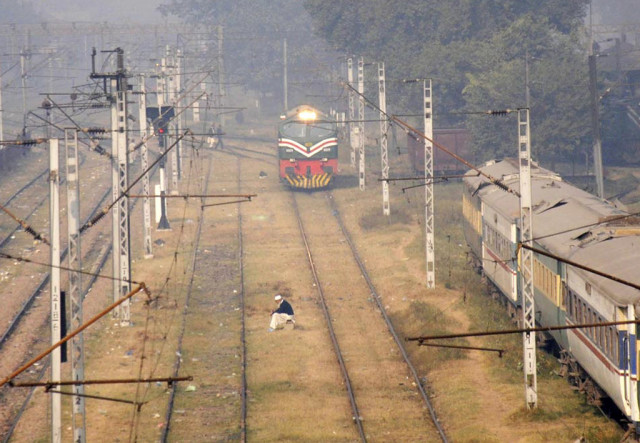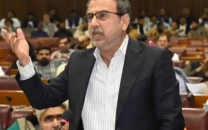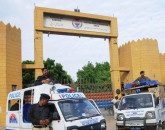Karachi Circular Railway: For Sindh, it’s a toss-up between China and Japan
CM recently met the Chinese delegation to discuss the project which has been with the Japanese since 2010

Karachi Circular Railway: For Sindh, it’s a toss-up between China and Japan
The Karachi Circular Railway (KCR) project once again seems to be in doldrums as the Sindh government cannot decide whether they want to give it to the Chinese or the Japanese.
Initially, it was the Japanese, by way of the Japan International Cooperation Agency (Jica), who had shown interest in the project in as early as 2010. The subsequent four years have been taken up in negotiations, proposals, counter-proposals, meeting conditions and appraisals, which has meant that groundwork on the project has not started so far.
On August 26, 2014, however, the Sindh government signed a Memorandum of Understanding with the China Railway Construction Corporation (CRCC), after the latter showed interest in the project. Earlier this week, a delegation of the CRCC met the chief minister, Qaim Ali Shah, to discuss the plan. An interesting development after the meeting emerged when the Sindh government asked the federal government to include the KCR project in the Pak-China economic corridor.
While officials in the Sindh government maintain that Jica will be given first preference for project, the former's actions, of late, prove otherwise.

SOURCE: KUTC
"The results of the meeting were positive but the government will give first preference to Japan," said an official of the provincial transport department, speaking on the condition of anonymity. "If the Jica is willing to construct the project, they have to send their appraisal mission and formally sign the agreement as we have completed the 46 conditions set for the project," he said, adding that the mission was due to arrive in July but was delayed due to the Karachi Airport attack. Subsequently, the destination was shifted to Islamabad but the delegation has yet to arrive.
Project status
On the one hand, the Sindh government has allocated 483 acres in Juma Goth where the people displaced due to the project will be rehabilitated. The land has been handed over to the Karachi Urban Transport Corporation (KUTC), which is dealing with the project.
The rehabilitation of the displaced persons, who the Sindh government termed encroachers, but the Jica referred to as 'project-affected persons' , was one of the conditions set by the latter. Around 4,583 families will be given housing according to the scheme.
"We have officially written to the Jica over six months ago to send the mission and proceed with the project but they have neither signed the formal agreement, nor have they sent the appraisal mission," said the official. "If the Jica comes to start the project soon, we will happily oblige, otherwise the project will be given to the CRCC," he said.
Another advantage of employing the CRCC for the project is the monetary benefits. Jica was investing Rs2.6 billion for the project as a soft loan with a markup of 0.1 per cent, payable over the next 30 years. The first 10 years were meant to be the grace period. If the project is given to the CRCC, however, the money will not be treated as a commercial loan as it will fall under the ambit of the Pak-China economic corridor. The CRCC has also promised to start the groundwork on the project in October 2015, if the Sindh government gives them the go-ahead.
Why the haste?
The Sindh government has lately come under a lot of fire by the public over delays in the project. The Punjab government's quick execution of mega-projects such as the metro-bus project, have also added insult to injury.
For his part, the provincial transport secretary, Taha Faruqui, reiterated the government's resolve to execute the project as soon as possible. He added that though an MoU was signed with the CRCC, the Jica would be given first preference as the latter had conducted their surveys and the Sindh government had worked very hard to meet all their conditions.
Faruqui was quick to deny rumours that the Sindh government was trying to get the loan into their own hands instead of it going to the Jica directly. "Neither Jica, nor the CRCC, will give any money to anyone in the project. Whichever company gets the job will hire their own consultants, use their own machinery and design and also complete the construction on their own," said Faruqui. "No one is getting any money," he said categorically.
The Jica representative in Pakistan, Mahmood Jilani, refused to comment on the issue.
Published in The Express Tribune, November 2nd, 2014.


















COMMENTS
Comments are moderated and generally will be posted if they are on-topic and not abusive.
For more information, please see our Comments FAQ